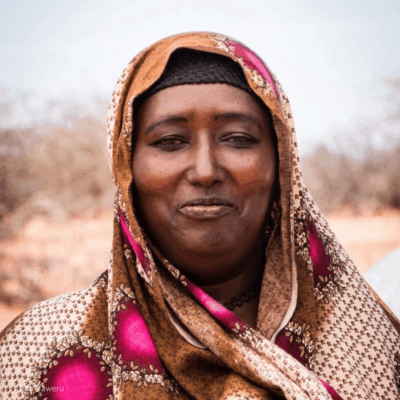Listeners:
Top listeners:
-
 play_arrow
play_arrow
118 | Kenyan Herders Say Judgement Against Them Based on Forged Signatures / Continuation of Episode 117
-
 play_arrow
play_arrow
117 | Surviving Survival Internatinal, Part 1: Kenyan Elders Call Foul on International Media, NGOs
-
 play_arrow
play_arrow
116 | From Ticking Time Bomb to Demographic Dividend: James Mwangi and Kenya's Great Carbon Valley
-
 play_arrow
play_arrow
115 | Unpacking Donald Trump's Very Weird Environmental Orders
-
 play_arrow
play_arrow
114 | Michael Greene: Carbon Cowboy or Lone Ranger? Part 1
-
 play_arrow
play_arrow
113 | The Future of Environmental Finance: Strategies for Biodiversity and Climate Solutions, with David Hill and George Kelly
-
 play_arrow
play_arrow
112 | Fantasy Football and Dynamic Baselines: New Tools for Impact Assessment
-
 play_arrow
play_arrow
111 | The False Dichotomy Between Reductions and Removals (Rerun)
-
 play_arrow
play_arrow
110| Ecological Economics, Systems Thinking, and the Limits to Growth
-
 play_arrow
play_arrow
109 | How Brazil's Quilombola Communities are Planting the Seeds of Sustainability for Small Farms Around the World, with Vasco van Roosmalen of ReSeed
Transcript
With the United Kingdom on the brink of leaving the European Union Emissions Trading System (EU-ETS), the United States locked in the inertia of a Donald Trump presidency, and populism stoking fears of slackening commitment to meeting the climate challenge, support for carbon markets is coming from two once-unlikely sources: namely, risk-adverse corporate boards and China, according to the International Emission Trading Association’s (IETA) annual Greenhouse-Gas Market Sentiment survey, which was released last week at the Innovate4Climate conference in Barcelona one day after Ecosystem Marketplace’s latest survey of voluntary carbon market practitioners, Unlocking Potential: State of Voluntary Carbon Markets 2017.
The Ecosystem Marketplace report identified transactions for roughly 63 million metric tons of carbon dioxide equivalent (CO2e) last year, including the 1 billionth metric ton transacted since the first State of Voluntary Carbon Markets Report in 2006. That represents a 24 percent drop from 2015, in part because two large participants failed to respond to the survey.
The total value was $191.3 million, and the report comes as governments around the world begin scaling up mandatory cap-and-trade programs to accelerate emission-reductions under the Paris Climate Agreement. In the past, governments have used voluntary carbon programs to incubate mandatory trading systems like the one currently underway in California. There are currently no plans for such incubation efforts, but the Dutch government recently became the latest government to formally endorse voluntary markets as a way to test new strategies and promote emission-reductions at home. At the same time, some voluntary offset types could be recognized under the aviation industry’s global cap-and-trade program, which kicks in after 2020.
The Need for a PR Offensive
The IETA report, which is built on a survey of 135 IETA members from across the globe and conducted by PwC, led to calls for a major “PR offensive” to counter populist rhetoric and anti-science propaganda, which reporter Jane Meyer ties to Koch Brothers, Richard Mellon Scaife, John M. Olin, and the DeVos and Coors families in her book “Dark Money“.
“The high of seeing the Paris Agreement enter into force last year was tempered by an increase in populist political movements that have pushed climate change down the agenda,” says IETA President and CEO Dirk Forrister. “While the changing political headwinds are cause for concern, we are encouraged by those that are stepping up to lead on climate action. Nationalism and isolationism won’t solve this global problem.”
Still, 77% of respondents said that climate change is a board-level priority, and 90% said board-level engagement has either increased or stayed the same in the past year.
On the voluntary carbon front, the majority of offsets sold came from programs that save endangered forests using mechanisms collectively known as REDD+ (Reduced Emissions from Deforestation and Forest Degradation, plus other land-use initiatives) and wind projects. Landfill methane projects followed as another top project type.
A disturbing 54.4 MtCO2e of offsets went unsold.
In addition to the above podcast, Hamrick will appear in two webinars we’re hosting on June 6th and 7th. For more resources and to download the free report, visit this page.
Episodes
117 | Surviving Survival Internatinal, Part 1: Kenyan Elders Call Foul on International Media, NGOs
April 13, 2025
116 | From Ticking Time Bomb to Demographic Dividend: James Mwangi and Kenya’s Great Carbon Valley
February 25, 2025
115 | Unpacking Donald Trump’s Very Weird Environmental Orders
January 27, 2025
114 | Michael Greene: Carbon Cowboy or Lone Ranger? Part 1
December 6, 2024





